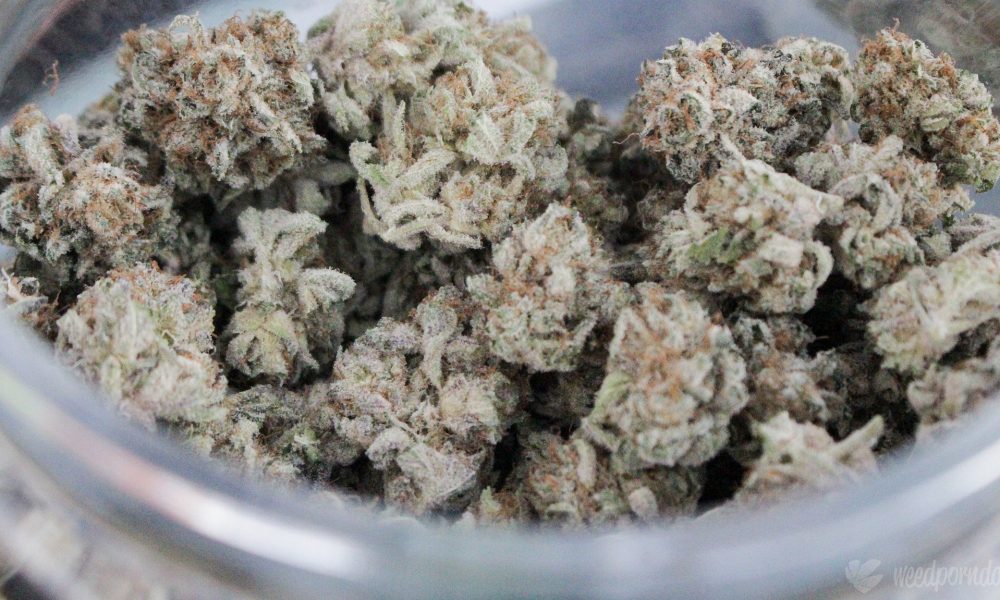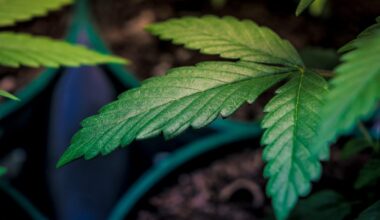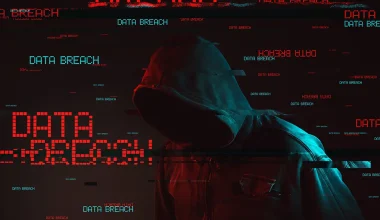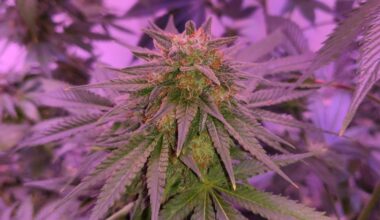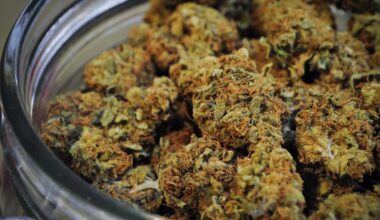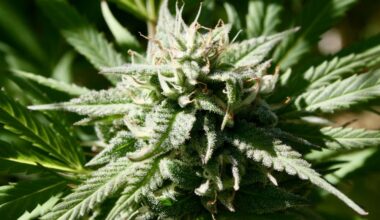A coalition of drug reform advocates in Washington State have announced they’ll seek to qualify a decriminalization measure for the state’s 2022 ballot, an attempt to build on modest reforms adopted by the state’s legislature during its most recent session.
While a draft of the prospective measure has yet been released, the group behind the proposal said in an email to supporters on Tuesday that it’s currently refining its language, which will “be filed as a new initiative in January for the November 2022 ballot.”
“At a minimum,” the group said, the initiative would make the following changes:
-
- Stop treating drug use as a crime and remove the fear of arrest as a barrier to engagement and recovery;
- Commit robust, long-term funding to a plan informed by the lived experiences of people harmed by the War on Drugs; and
- Emphasize public health approaches that focus on the social determinants of health and meet the needs of rural and urban communities across the state.
Signature gathering to qualify the prospective ballot measure would begin in February if all goes according to plan.
The group behind the measure, Commit to Change WA, was formerly known as Treatment First WA and in 2020 attempted to qualify a decriminalization measure for that year’s state ballot. That initiative would have made unlawful possession of any drug a civil infraction, referred people found with drugs to a services assessment, and funded a massive expansion of outreach and recovery programs.
When the pandemic interrupted the signature gathering effort for that measure, organizers shifted their focus to the legislature. After months of delay, House Bill 1499, largely based on the earlier initiative, was introduced this past February but eventually died after clearing one House committee.
The group said its name change reflects the fact that “it is past time to change course” on the drug war—and communicates the need for drug policy solutions to take a whole-person approach.
“Prioritizing treatment over incarceration is one important piece of a new approach, but repairing decades of damage caused by the War on Drugs requires a fundamental shift in paradigm,” the group said, “and a long-term commitment to tailoring prevention and recovery strategies to the specific needs of individuals and communities—whether those needs are for treatment, housing, job training, mental health care, or other chronically under-resourced services.”
State lawmakers earlier this year downgraded Washington’s criminal penalty for drug possession from a felony to a misdemeanor, but only under duress. Months earlier, the state Supreme Court had invalidated the state’s decades-old felony law, leaving no valid law on the books against simple possession. While more progressive Democrats urged against reinstating criminal penalties, the legislature ultimately adopted the misdemeanor charge along with plans to create a statewide suite of treatment and recovery services. The law, widely seen by advocates as a half-step toward meaningful reform, took effect in May with Gov. Jay Inslee’s (D) signature.
Commit to Change wants to undo the state’s re-criminalization of simple possession and dedicate sustained funding for a new system. While the legislature’s compromise required the development of a statewide recovery plan, the group said, “it didn’t dedicate any funding for the services to be provided, leaving it to the legislature to decide whether and what to appropriate each budget cycle.”
Regardless of what happens with Commit to Change’s latest proposal, Washington’s new misdemeanor possession is already set to expire. As passed by the legislature earlier this year, the law’s criminal penalty provision will dissolve on July 1, 2023, again leaving the state without a law against drug possession. That feature was included as an incentive for lawmakers to revisit the issue in coming years. The possibility of a decriminalization ballot measure in 2022 could create further pressure to act.
Meanwhile, out-of-state advocates are also eying Washington as among the next frontiers for drug reform at the ballot box. David Bronner, the CEO of soap company Dr. Bronner’s and a major funder of drug reform efforts, said at an event last week that he expects statewide measures in 2024 to decriminalize all drugs in at least three states: Washington, California and Colorado.
“No one should be further traumatized with arrest and incarceration who is struggling with addiction,” he told Marijuana Moment in an email Wednesday, adding that there are specific provisions he’s hoping to see adopted into the initiatives in Washington and elsewhere.
“I’m advocating to allies there that the all-drug decrim policy for possession should have substantially higher (ideally no) defined limits for personal possession for plant medicines than Measure 110 in Oregon,” he wrote, referring to the drug decriminalization ballot measure that voters in that state approved last November.
Bronner is also pushing for proposed laws to allow for aggregating personal possession limits to cover “facilitated and supported use.”
“Group healing with plant medicines is great for people struggling with addiction, by helping people process and heal the underlying trauma and emotional pain at issue,” he said.
A task force based in Seattle, meanwhile, recently issued recommendations advising that local and municipal leaders decriminalize psychedelics—and eventually consider legalizing all drugs—as one of a handful of policy changes designed to reduce opioid overdose deaths. Activists at the local group Decrim Nature Seattle have also submitted a draft psychedelics-decriminalization ordinance at the request of City Councilmember Andrew Lewis. Bronner said he’s “hopeful that DN Seattle’s resolution will be voted on and passed before the end of this year.”
Nationwide, states and cities across the country have reconsidered their drug laws in the wake of the 2020 election, when voters in Oregon approved two separate statewide initiatives, one decriminalizing possession of all drugs and another to legalize psilocybin, the main component of psychedelic mushrooms, for therapeutic use. Washington, DC also passed a measure decriminalizing plant- and fungi-based psychedelics.
In May, lawmakers in Congress filed the first-ever legislation to federally decriminalize possession of illicit substances.
In California, the Senate approved a bill this year to legalize possession of psychedelics. If also cleared two Assembly committees, but its sponsor moved to pull it from further consideration until next year in order to have more time build support within the legislature to ensure passage.
Separately, psychedelics activists in the Golden State recently filed a petition for the 2022 ballot to make the state the first in the nation to legalize psilocybin mushrooms for any use. A fiscal analysis of the proposal found that it would save the state millions in enforcement costs and also generate state and local tax revenue. Oakland and Santa Cruz have already enacted psychedelics decriminalization.
Michigan senators introduced a bill last week to legalize the possession, cultivation and delivery of an array of plant- and fungus-derived psychedelics like psilocybin and mescaline. Locally, the Ann Arbor City Council approved entheogenic decriminalization last year, and efforts are also underway in Grand Rapids to enact a policy change for psychedelics. Voters in Detroit will decide on a psychedelics decriminalization ballot measure this November.
Meanwhile, Denver activists who successfully led a 2019 campaign to make the city the first in the U.S. to decriminalize psilocybin possession have their eyes set on broader reform, with plans in the works to end the criminalization of noncommercial gifting and communal use of the psychedelic.
In a setback for advocates of broader research into controlled substances, however, the U.S. House of Representatives recently voted against a proposal from Rep. Alexandria Ocasio-Cortez (D-NY) that would have removed a spending bill rider that advocates say has restricted federal funds for research into Schedule I drugs, including psychedelics such as psilocybin, MDMA and ibogaine. However, the proposal picked up considerably more votes this round than when the congresswoman first introduced it in 2019.
Read a description of the proposed Washington drug decriminalization ballot measure below:
Washington Drug Decriminalization Campaign by Marijuana Moment on Scribd
Medical Disclaimer:
The information provided in these blog posts is intended for general informational and educational purposes only. It is not a substitute for professional medical advice, diagnosis, or treatment. Always seek the advice of your physician or other qualified healthcare provider with any questions you may have regarding a medical condition. The use of any information provided in these blog posts is solely at your own risk. The authors and the website do not recommend or endorse any specific products, treatments, or procedures mentioned. Reliance on any information in these blog posts is solely at your own discretion.
